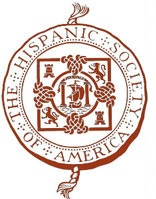
The New York Congestion Mitigation Commission laid out its plan for implementing congestion pricing below 60th Street in Manhattan in a report released on Thursday.
The Commission formed last summer to develop a plan to alleviate traffic congestion in central Manhattan. The final recommendations, which are subject to approval by the City Council and the Assembly, include an $8 fee for cars—$21 for trucks—entering the borough below 60th Street on weekdays between 6 a.m. and 6 p.m.
According to Gene Russianoff, CMC member and staff attorney for the Straphangers Campaign, a riders’ advocacy group, only 5 percent of the city’s workforce commutes into the central business district by car.
“We’re really talking about a pretty small number of people who cost us a lot in traffic and dirty air,” Russianoff said. “If they want to drive, that’s their decision, but they should make a fair contribution to addressing the problems they’re creating.”
The Commission’s deliberations were part of “a very good process, but we haven’t finished our job,” said CMC member and city assemblyman Herman Denny Farrell, D-West Harlem and Washington Heights.
Farrell, who voted against the final plan, cited major concerns with the fact that cars can enter Manhattan from New Jersey via the George Washington Bridge, without paying the $8 fee, and the lack of concrete information on how the revenue will be used. He called on the Metropolitan Transportation Authority to release its five-year plan so that the Commission and City Council members can consider all relevant information.
For many people, the shifting of the boundary for congestion pricing from 86th Street down to 60th Street was a significant improvement.
“Sixtieth is a much better boundary, because north of 60th is still very residential, and south of 60th is so well served by public transportation that most of the people who live there don’t have a car anyway,” said Cynthia Doty, an organizer for the West Harlem/Morningside Heights Sanitation Coalition.
Another issue of contention was the transparency of the process and whether Manhattan residents, commuters, and politicians had been given sufficient opportunity to chime in.
“There has been tremendous opportunity for the community to have input, and I think the Commission has listened,” Doty said. “More people now know about the plan, so it’s become a better process. A lot of people have had to give answers and had to think it through a lot more. ... It’s a way to generate money for public transportation, and I really believe we have to have better transportation in this city both for the environment and for the public.”
Russianoff said he supported the contents of the report as a whole, but added that some details should and likely will be revised.
“I like the report because it tries to do two things at once—reduce traffic congestion on the streets and at the same time make transit a more practical and attractive alternative ... especially for people who are not well-served by transit,” Russianoff said. Still, he added: “There are some people who have to drive, who are at a relatively low income. Maybe the legislature should look at some kind of program to exempt or soften the blow for really low income drivers.”
Other proposals considered, but not included in the final report, were increasing cab fares, raising tolls, required carpooling, and an exemption from the $8 fee for hybrid vehicles.
Russianoff emphasized the necessity of some sort of congestion pricing plan to mitigate the MTA’s financial crisis, which he said was the worst he had seen in his 25 years as a transit advocate. The only other viable option, he said, would be a new tax, and congestion pricing would be “by far the preferable alternative.”
“One way or another,” Russianoff said, “The legislature’s going to have to find resources to keep the transit system in good shape.”
The Commission’s recommendations will now go to the City Council for a vote. The Council will revise the report as it sees fit, and then send it to the Commission for final review. The New York State Legislature must also vote on the plan before it can take effect.








+(3).jpg)



.jpg)
+(3).jpg)


No comments:
Post a Comment